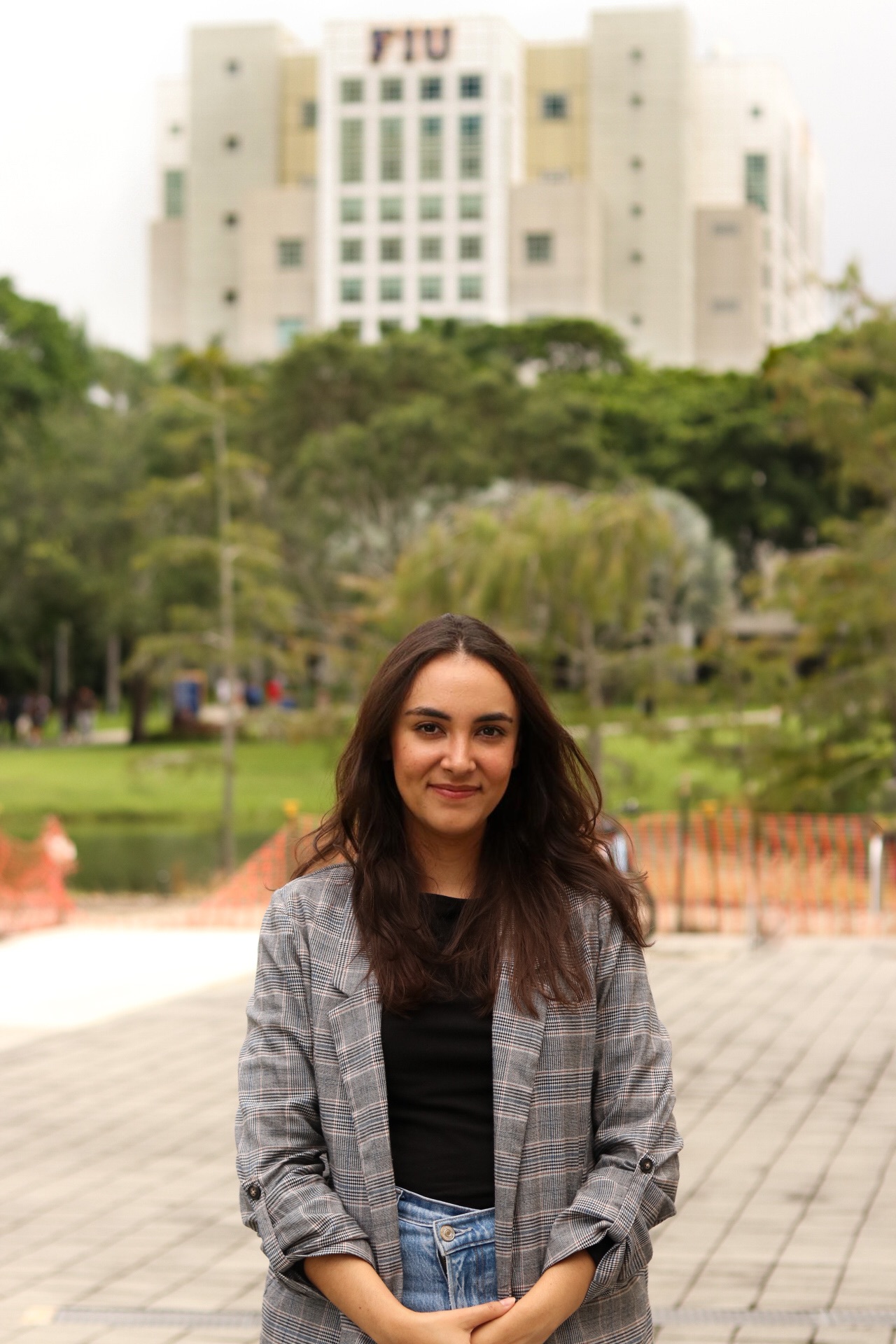The Department of Politics and International Relations is pleased to have exceptional students who are now on the job market. If you have any questions, please contact the individual candidate.
International Relations PhD Candidates and Recent Graduates
- Nomeh Anthony Kanayo, PhD Candidate in International Relations

Dissertation Committee Members
Dissertation Committee Chair: Dr. John Clark
Dissertation Committee Members:Dr. John Clark (Chair), Dr. Thomas Breslin, Dr. Jin (Julie) Zeng, Dr. Alexandra Barder, Dr. Saheed Aderinto
Research Interests:International Development & Political Economy, Global Governance & Emerging Institutions, Postcolonial Theory, Comparative Politics, and Foreign Policy
Dissertation Title: Beyond Perception: Examining the Diffusion of China's Socio-Political and Institutional Subjectivities in Africa
Dissertation Abstract:
Soft power has become a catch-all for explaining China's entrenched involvement in Africa. However, its application to analyzing China's presence in Africa has largely been superficial, reduced narrowly to the issues of ‘attraction’ and ‘perception’. Yet, originally defined, "soft power" entails an implicit emulation or imitation that could follow from attraction (Nye 2004, 21). How does the concept, broadly understood, apply to China-African relations? Arguably, beyond seeking admiration or positive perception, China's rise reflects an aspiration for the world—including Africa—to view issues from its perspective and for institutions to reflect its values and subjectivities. This study moves beyond the dominant perception-based discourse by engaging the deeper dynamics of adoption, emulation, and imitation inherent in the concept's original formulation. Drawing on Benabdallah's Relational Productive Power Framework (RPPF), however, decentering ‘political elites’ and centering ‘African peoples’ given the former's long-standing opposition tendencies towards Western liberal norms and the latter's role in preserving them, it examines Sino–African relational networks across education, media, societal, and corporate sectors to identify empirical evidence of the transmission and internalization of Chinese socio-political and institutional subjectivities, as well as their implications for Africa's relations with the West. Methodologically, the study employs content analysis and focus group interviews with Africans who have had the most sustained exposure to Chinese subjectivities, hence offering fresh and more grounded insights into the soft power concept and its application to China-Africa discourse.
Email: knome001@fiu.edu
- Grisel d'Elena, PhD Candidate in International RelationsChair and committee members: Dr Mesbahi (Chair), Dr Lob, Dr Cox and Dr Grenier (Religious Studies)Title of Dissertation: In Search of Agency: The International Response to the Rohingya Crisis, Regional Geopolitics, and Democracy, Ethnicity, Race, and Religion in MyanmarAbstract: This dissertation sheds light on how the factors of race, religion, failed democratization, and the permissibility of geopolitical actors have produced one of the most flagrant human rights atrocities against the Rohingya in Myanmar. Despite waves of displacement over the past three decades, the plight of the Rohingya has been underreported. Oftentimes, the Rohingya crisis has been ignored by the international community against the backdrop of Myanmar’s purportedly democratic reform process during the country’s transition away from military junta under the leadership of Aung San Suu Kyi. The military coup of 2021 coupled with the geopolitics of Myanmar, including the interests of China, and ASEAN in the region impacted both the stateless Rohingya and Myanmar’s citizens by producing international permissibility. One of the key themes of this study is the importance of providing agency to the Rohingya and other marginalized groups in the country by examining the dehumanization from the military and the international community's response to the humanitarian crisis. This dissertation provides a nuanced understanding of the historical, political, and cultural factors that have led to the ongoing crisis and emphasizes the need for both local and international actors to work together to find a just and sustainable solution.Research Interests: Statelessness, Foreign Policy, Geopolitics of China and Russia, International Organizations, Security theory
- Adam Ratzlaff, PhD Candidate in International RelationsDissertation Committee: Barry Levitt (Co-Chair), John Oates (Co-Chair), Eduardo Gamarra, Felix Martin, and Tawia Ansah.Dissertation Title: The Organization of American States & 20 Years of Contested Democratic Norms in the AmericasAbstract: In 2001, representatives of 34 countries from across the Western Hemisphere gathered in Lima to sign the Inter-American Democratic Charter—a mechanism that provided the Organization of American States (OAS) with the mandate and tools to collectively defend democratic governance in the Americas. However, while there has been a notable decline in the number of military coups in the Americas, democratic backsliding and novel threats to democracy have emerged. By analyzing debates within the OAS, this dissertation explores how norms about the definition of democracy and what constitutes undemocratic actions are contested and how different responses and rhetorical approaches have shaped the erosion of democracy in the Americas since the passage of the Democratic Charter.Research Interests: Inter-American Affairs, Democracy, International Organizations, Sino-Latin American relationsWebsite: www.adamratzlaff.comEmail Address: aratzlaf@gmail.com
- Yuanhao Tian, PhD in International Relations, GraduatedDissertation Committee:Dr. Jin Zeng (Chair), Dr. Thomas Breslin, Dr. Eric Lob, Dr. William NewburryDissertation Title: Navigating the Crossroads of Power: Chinese Investment in Latin America Amid U.S.-China RivalryAbstract: In less than two decades, Chinese multinational enterprises (MNEs) have transitioned from marginal players to key investors in Latin America, challenging U.S. economic hegemony in the region. This dissertation examines why Chinese MNEs remain resilient in the region despite unfamiliar institutional environments and rising geopolitical tensions between the U.S. and China. It argues that the U.S.-China rivalry and local industrial development policies shape the operations of Chinese firms in dynamic ways. First, the geopolitical rivalry impacts Chinese MNEs differently depending on their strategic significance. Firms in crucial sectors like technology or with dual-use potential face heightened scrutiny and challenges, while those in non-strategic sectors exhibit relative resilience. Firms competing against crucial sectors may even benefit from the rivalry. Second, protectionist policies in countries like Brazil drive localization strategies, fostering local integration, technology transfer, and employment creation. In contrast, liberalized markets such as Chile and Dominica Republic allow for easier entry, favoring less localized but more rapid operations. Third, despite skepticism, Chinese investments increasingly contribute to local socio-economic development, leveraging corporate social responsibility and industrial upgrading to build trust and integrate with local economies. Through interdisciplinary analysis, case studies, and fieldwork in Brazil, Chile, and Dominica Republic, this research advances our understanding of how geopolitics, institutional environments, and local policies interact to shape the strategies and impacts of Chinese MNEs in Latin America.Research Interests: International Political Economy, China Study, Latin American Study, Globalization, GeopoliticsEmail Address:ytian020@fiu.edu
Political Science PhD Candidates and Recent Graduates
- Maria Ovalle, PhD Candidate in Political Science

Dissertation Committee Members
Dissertation Committee Chair: Dr. Eduardo Gamarra
Dissertation Committee Members: Dr. Eduardo Gamarra, Dr. Todd Makse, Dr. Dario Moreno, Dr. Joshua Scacco (USF), and Dr. Susan Jacobson
Research Interests: Latino politics, political behavior, political communication, immigration, survey research
Dissertation Title: Latino Conversations: How Social Networks and Interactions Shape Latino Immigration Attitudes
Dissertation Abstract:
This dissertation explores how interpersonal political discussions, and framing influence immigration attitudes among Latino voters. Drawing from survey data and experimental methods, my research examines the role of disagreement, group identity, and issue framing in shaping complex political preferences. The first chapter investigates whether frequent exposure to disagreement in immigration discussions leads Latinos to adopt more moderate or ambivalent policy positions. The second chapter explores how in-group versus out-group political conversations influence the adoption of value-based versus fact-based reasoning, revealing how ethnic identity shapes the framing of immigration attitudes. The third chapter introduces the concept of Issue Contestation Patterns to distinguish factual from moral disagreements and tests their effects in a deliberative experimental setting. Together, these three studies illuminate the social and cognitive processes that underpin Latino political judgment, offering new insights into deliberative democracy, group dynamics, and the strategic communication of immigration issues.
Professional Website: https://mariajovalle.com/about
Email: moval011@fiu.edu
- Daniel I. Pedreira, PhD in Political Science, Graduated

Dissertation Committee Members
Dissertation Committee Chair: Dr. Dario V. Moreno
Dissertation Committee Members: Dr. Tatiana Kostadinova, Dr. Eduardo A. Gamarra, and Dr. Matthew C. Mirow
Research Interests: Executive branch politics, Cuban Politics, Latin American politics, democratization, authoritarianism.
Dissertation Title: Semi-Presidentialism in Cuba: Institutionalization and Personalization under the 1940 Constitution
Dissertation Abstract:
The drafters of Cuba’s 1940 Constitution codified a semi-presidential system in the hopes of avoiding “the perils of presidentialism” that plagued the Cuban Republic’s early decades. Yet Cuba’s semi-presidential system lasted for less than twenty years. This dissertation seeks to determine the extent to which Cuba’s executive branch was institutionalized or personalistic in nature. Covering each presidential administration during the period, this dissertation takes a quantitative and qualitative approach towards analyzing several defining features of Cuban semi-presidentialism, including presidential and ministerial decrees, mentions of executives and institutions in newspaper and magazine headlines, the different roles of executive branch actors, and caricature themes in relation to different administrations. Notably, this dissertation represents the first study conducted on semi-presidentialism in Cuba. This dissertation will also impact the broader field of political science by contributing to the existing literature on semi-presidentialism. The findings may provide insights into why democracy collapsed in Cuba after only two decades of semi-presidentialism. The functions of semi-presidentialism under both democratic and authoritarian regimes during this period can offer useful comparisons into similarities and differences across regime types. In doing so, they can also shed light on prospects for democracy’s return to Cuba under the current authoritarian regime.
Professional Website:http://danielpedreira.com
Email:dpedreir@fiu.edu
- Garrett Pierman, PhD in Political Science, Graduated 2021

Program: Political Science
Dissertation Committee Chair: Dr. Clement Fatovic
Dissertation Committee Members: Dr. Alexander Barder, Dr. Ronald Cox, Dr. Whitney Bauman
Title: A Future of Our Own Making: Technological Possibilities For Democracy
Short Abstract: Early enthusiasm for the potential of digital platforms to invigorate and transform democracy has given way to concerns about whether digital politics is necessarily democratic. Broadly, this study seeks to examine how—and if—the internet functions as a public space conducive to democratic practices. The web offered something new- a means by which people could not only consume media (as was largely the case with radio and television) but could themselves become creators of content, critics, and commentators. This interactivity through the technological marvels of the internet could have resulted in a flourishing of democratic practices across the boundaries of class, race, gender, and geography. However, the construction of platforms such as Facebook and twitter, and the ways in which users inhabit them, may have less democratic results than the optimists hoped. With the increasing extent to which politics is conducted on the internet, through online platforms, scholars have begun to question the democratic potential of the web. The study surveys existing literature on digital deliberative democracy, then reads a history of the internet through Actor Network Theory, Gilles Deleuze, and others to theorize that the contemporary internet is an actor-network with capitalist internal resonances that empowers corporate interests to the detriment of everyday peoples’ ability to empower themselves and each other to participate in democratic deliberation.
ORCID webpage: https:/orcid.org0000-0003-0157-405X
Email: gpier018@fiu.edu